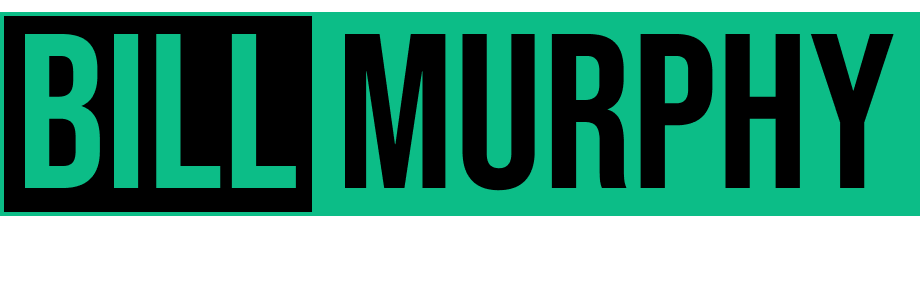Merriam-Webster Dictionary describes adversity as “a state or instance of serious or continued difficulty or misfortune.” As humans, we do everything we can to avoid adversity, but unfortunately, facing difficulty is a sure thing in life. Because we know that hardships are inevitable, the best option is to train ourselves on overcoming adversity ahead of time.
Check out three of the best ways you can prepare yourself to thrive through adversity, recently discussed by Bill Murphy, author of Thriving in the Storm: Nine Principles to Help You Overcome Any Adversity, on the Up Next Podcast with Gabriella Mirabelli.
Principle 1: Manage Your Mind
When preparing for adversity, you must strengthen and harden your mind. Managing your mind begins by putting in good content and avoiding distractions and negative influences. Reading positive things, journaling, and showing gratitude can help create positive changes in your mindset and physiologically.
Negative thoughts often harness negative events. Likewise, positive things happen when you shift your mind to think positively!
Training yourself to avoid worrying is another essential way to manage your mind and prepare for overcoming adversity – Did you know that research shows that about 90% of the things people worry about don’t ever happen? Talk about mind-blowing! When you start to feel a pattern of worry set in, one great way to retrain yourself is to give thanks, which works by changing your emotional state.
Let’s dive deeper into a few questions discussed in the podcast…
Is “controlling your emotions” changing your emotion or recognizing it?
Controlling your emotions is recognizing and acknowledging them – you must be in touch with what you’re feeling, which takes practice. Try to implement this into your morning routine – notice how your thoughts and emotions make you feel at the start of each day.
What should we ask ourselves before taking action when we feel emotionally triggered?
Begin by “practicing the pause.” Ask yourself how your follow-up action will affect others and your future. Recognize that you are upset, take a deep breath, identify your emotions, and think about your next move. If what you want to do is not in your best interest long-term, ask yourself, “What is the next best thing I can do?”
How can you stop yourself from anxiety cycling and truly begin to focus (if you are not naturally driven)?
Lean on a coach, accountability partner, colleague, or family member. Declare your goals to supportive people whom you know you can trust. This accountability can motivate in a way that other things can’t! Decide that you may fail at your goal, but you won’t quit.
Principle 2: Identify and Break Negative Patterns
Do you have negative thoughts involving doubt, fear, and unworthiness? These negative patterns must be addressed before real growth can happen. So, how do we do that?
- Recognize your limiting beliefs.
- Name your limiting beliefs.
- Establish new habits to replace your limiting beliefs.
How do you “bulletproof your schedule” to help avoid negative patterns?
Begin by scheduling your day every day. Make sure you plan the “hard” things first. Split your more challenging tasks into two segments throughout the day, allowing more manageable tasks in between. While it is essential to prepare for the hard stuff first, don’t forget to schedule a break, too. Don’t punish yourself for taking a break either – allow yourself to enjoy it so you can be more productive afterward.
If you’re not hitting goals, how can you audit your “failure” without internalizing it?
Consider this a fantastic opportunity to utilize a coach! Everyone should be coached in their career, business, fitness, and life. Your coach can guide you on where you are falling short and how you can change your actions, helping you hit your goals more effectively.
However, if you can’t hire a coach, here are three self-auditing questions you can use at the end of your day to help: What were my wins today? What did I learn? Were there any silver linings to my adversity?
How do we avoid turning “winning the day” into a demand for perfection?
Even if you fall short of your goals but still set them, you are coming out ahead. By selecting a goal and working toward it, you’ve created a win and learned something. Our greatest lessons sometimes come from when we fall short.
Principle 3: The Superhuman Power of Positivity
You set yourself up for opportunities when you look for positivity. People who are negative, distracted, and complaining create a “nothing’s ever good enough” environment. Instead, surround yourself with optimistic people and seek out your own positive emotions. Journaling and meditation are excellent ways to do that. Also, visualize your success and positive outcomes.
How can we visualize our success? Use your five senses!
- What do you see?
- What do you hear and feel?
- Do you taste anything?
- What does success “smell” like?
- Who is there patting you on the back?
Why is journaling so powerful?
Journaling can bring about reflection, growth, and teaching moments. This practice can teach you about yourself, your patterns, and what makes you grateful. Sometimes we forget what has worked for us, and reviewing past journals reminds us of those things.
What is a good technique for successfully changing habits?
Eliminate distractions. Instead of spending hours watching the news, check out an informative news article once daily… Use that extra time for productivity!
Are You Ready to Explore More Life-changing Principles for Overcoming Adversity?
- Click here to listen to the full podcast with Bill and Gabriella.
- To explore all nine principles of overcoming adversity, take a moment to order Bill’s latest book, Thriving in the Storm: Nine Principles to Help You Overcome Any Adversity.
- Lastly, don’t forget to explore more of Bill’s podcasts here!
